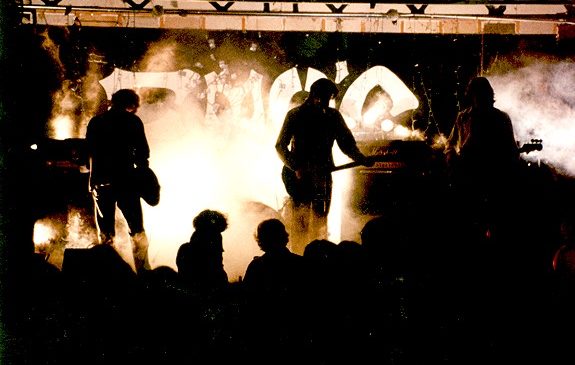Music Commission seeks say in land use around affordability, creative spaces
Wednesday, September 14, 2022 by
Chad Swiatecki Members of the Music Commission have set their sights on influencing how the city handles land use specific to affordability, in the hopes that more homes and commercial spaces can be created for local musicians and artists.
The commission voted unanimously at Monday’s meeting to reorganize a recently formed working group focused on the proposed expansion of the Austin Convention Center, with land use in the urban core selected as a more worthwhile goal. Chair Anne-Charlotte Patterson said her conversations with members of the Arts Commission brought about the need to address land use.
The Arts Commission is expected to vote on nominating members to the joint working group at its next meeting.
Patterson said the pace of growth throughout the city and the lack of incentives or other civic tools to promote new creative spaces and affordable housing is growing into a crisis for Austin’s overall character and reputation as an artist-friendly city.
“Real estate costs are the critical issue for so many things in Austin, but especially in the music and cultural arts for venues, promoters, musicians and music workers having to drive in from the suburbs to work a gig,” she said.
“There are more and more clubs open now outside of town and we’re going to suffer a loss of talent and loss of venues. I see opportunities with real estate developments for those kind of things … this can make your development cooler and it can help you get it through Planning Commission.”
City Council has indicated in recent months that it would like to see what options could be used from a planning and code perspective to incentivize new developments to include venue and studio space or affordable units intended for artists.
Two resolutions passed in the last month have started the process of including specific descriptions and use cases in the building code for music venues and creative spaces. Once established as uses separate from bars and nightclub uses that face higher planning and zoning requirements, those new classifications could have incentives attached to them because they are seen as a public benefit.
Commissioner Stuart Sullivan, who is losing his recording studio space in the Mosaic Sound Collective hub because of redevelopment plans for that property, said the pace of development activity in the city may make any civic or policy steps irrelevant.
“The city moves very slow. Private business does not, and there’s not going to be a piece of property that the city wants … that will withstand a four- or five-year wait. Everybody’s going to develop property before the city can ever get it,” he said. “As these (working groups) have an idea, by the time it gets to stage two the land has already been bought and sold. There’s not a real answer to making it affordable in the city center.”
The city’s Economic Development Corporation is in the process of making final evaluations of the applicants who over the summer submitted proposals to use some of the $19 million-plus the city has available to support and open creative spaces and music venues. The money comes from a mix of sources, including a 2018 bond issue approved by voters that allotted $12 million toward creative spaces.
Members discussed the merits of including a developer or real estate-adjacent professional in the group to advise members on the business and planning realities at play in Austin.
Commissioner Patrice Pike said the working group will need to ask city leaders how much importance they place on keeping the city center from becoming mainly a playground for the wealthy.
“Does the city as well as Austin business owners value musicians as a cultural, tax-generating population, along with the blue-collar working class in general, to actually mandate and manifest affordable housing? All districts right now are at a high risk of gentrification and the trend of house-flipping by outsiders and overlooking regulations for short-term rentals is real.”
Photo made available through a Creative Commons license.
The Austin Monitor’s work is made possible by donations from the community. Though our reporting covers donors from time to time, we are careful to keep business and editorial efforts separate while maintaining transparency. A complete list of donors is available here, and our code of ethics is explained here. This story has been changed since publication to make a correction. The city’s Economic Development Corporation (not department) is evaluating creative space applications.
You're a community leader
And we’re honored you look to us for serious, in-depth news. You know a strong community needs local and dedicated watchdog reporting. We’re here for you and that won’t change. Now will you take the powerful next step and support our nonprofit news organization?



